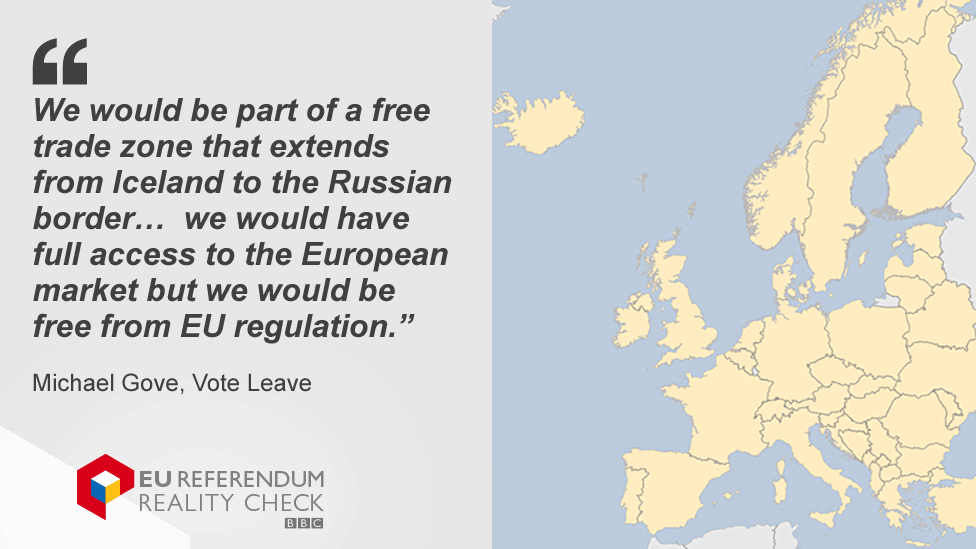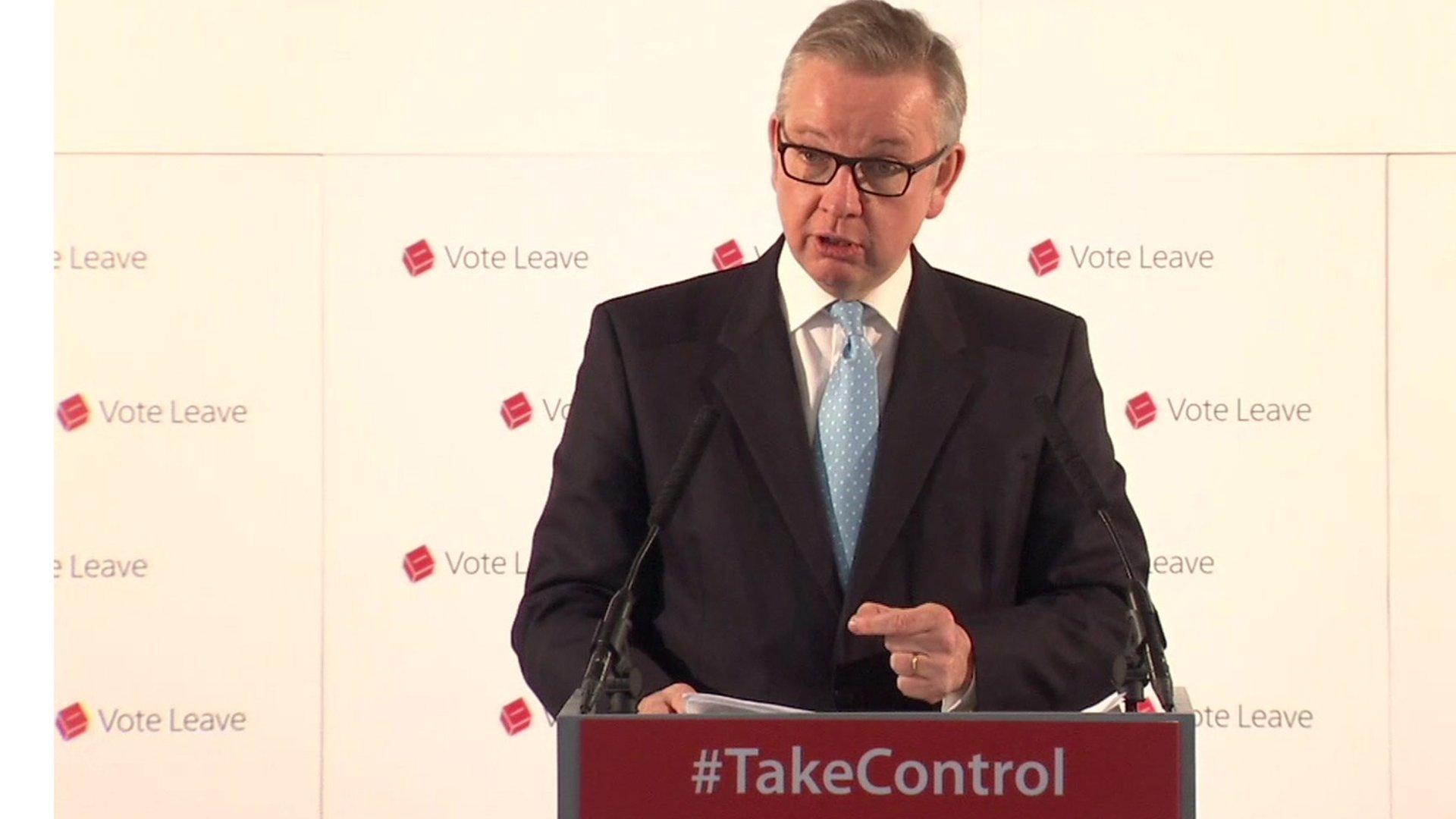Reality Check: Free trade free from regulation?
- Published

We got an insight to the sort of trade deal the leave campaign would like to secure for Britain outside the EU this morning when Michael Gove said: "There is a free trade zone stretching from Iceland to Turkey that all European nations have access to … after we vote to leave we will remain in this zone."
He went on to say: "By being part of that free trade zone we would have full access to the European market but we would be free from EU regulation."
This may be Michael Gove's hope, but it will be very difficult, if not impossible, to deliver in reality.
Assume "the European market" means the countries of the European continent. As Mr Gove says, excluding Russia and Belarus they are all part of a "free trade area" of sorts.
However, that is not one homogenous block but a mixture of agreements with varying conditions.
At its heart is the 'single market' of 28 member states of the EU.
Then there is the European Economic Area, a deal between Norway, Iceland, Liechtenstein and the European Union.
Switzerland has its own bi-lateral agreement with the EU because its people rejected membership of the EEA in a referendum.
Turkey is part of a customs union. Other European states included in Mr Gove's definition, like Ukraine, also have bi-lateral deals with the EU.
All have required concessions from their members in order to do a deal.
The EEA deal with the EU came in on January 1st 1994 and effectively expands the single market to Norway, Iceland and Liechtenstein - we could call this "full access".
But in return they accepted EU regulations and its so-called four freedoms - the free movement of goods, services, people and capital (although the EU and Liechtenstein agreed an immigration quota so incomers did not affect the national identity of its tiny population).
Switzerland's agreement also requires the free movement of people but has less access for the services industry, a vital part of the UK's economy.
To achieve his goal of "full access" but no "EU regulation" from Iceland to the Russian border Mr Gove would have to come to a deal with the EU, the EEA and a number of European countries outside the EU, notably Switzerland.
Stephen Booth, co-director of think tank Open Europe, said: "The term free trade is a misnomer. What we're really talking about is preferential trade. It's about: 'You can have access to our market in return for access to yours'
"If you want preferential access the only way to do that is through a negotiation and a negotiation is a two-way street. You're not going to get something for nothing."
We can assume a deal for "full access" to the EU market will be impossible without concessions on either EU regulation or the free movement of people, or both.
The German and French governments have made it clear being in the single market means free movement of people, for example.
We could have freedom from EU regulation under World Trade Organisation rules but we can expect EU tariffs on our goods - not free access.
It is perfectly reasonable to assume the EU and other European countries would want to do trade deals with the UK but there is no reason to believe the UK can expect special treatment.
Reality Check verdict: Full access with no regulation may be Mr Gove's hope but it looks impossible to deliver in practice.
Update 20 December 2016: This report has been amended to include details of Liechtenstein's immigration quota.


READ MORE: The facts behind claims in the EU debate

- Published19 April 2016
